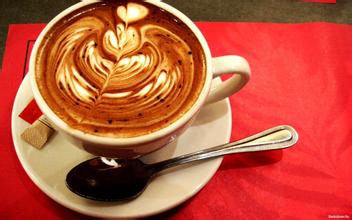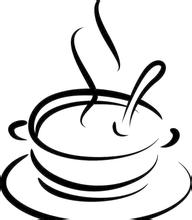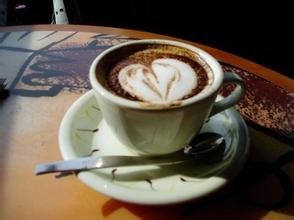Introduction to the taste of Jamaican Atlanta Manor Coffee with a good balance of acid, sugar, alcohol and bitterness.
Columbus came to Jamaica in 1494, and in 1509 Spain declared Jamaica its colony and renamed it Santiago. Spain's slave policy towards the indigenous peoples led to the extinction of the Arawaks on the island as a result of war, disease and enslavement. To make up
Jamaica
Jamaica
As a labor force, Spain began to sell slaves from Africa to Jamaica since 1517, causing blacks to gradually become the dominant nation of Jamaica. In 1538, the Spanish founded the Spanish city as the capital of Jamaica.
Since the late 16th century, Jamaica has been repeatedly attacked by pirates from France, England, the Netherlands and other countries. In May 1655, a British fleet led by William Bing and Robert Venables occupied Jamaica. They immediately invited pirates to the island's port of Loire to help defend the Spaniards from possible counterattacks. Between 1657 and 1658, the Spaniards fought back from Cuba and failed in the tropical rainforest climate. The rainy season is from May to June and from September to November every year, with the most showers in January and May. The dry season is from December to March next year, and the weather turns cooler. The half-year period from June to the end of November is often hit by hurricanes and tropical storms. The north-central region is rich in rainfall, the climate is generally between 22 and 32 degrees, and the annual average temperature is 27 degrees. [6]
Resources
Jamaica's resources are mainly bauxite, with reserves of about 2.5 billion tons, ranking fourth in the world, with an exploitable capacity of 1.5 billion tons and an annual output of 15 million tons of bauxite, second only to Australia. [2] other rich resources include copper, iron, lead, zinc and gypsum. The forest area is 265000 hectares
When it comes to Jamaica, everyone's eyes lit up immediately, because it produced the best "Jamaican Blue Mountain Coffee" (Jamaica Blue Mountain) in the world. We absolutely believe that Jamaica Blue Mountain Coffee is the best coffee, its acid, sugar, alcohol and bitterness are well balanced, fragrant and smooth to drink, but its price is so high that although it is worth a try, there is no need to be fascinated by it. Because other selected coffee also has its own characteristics, and the taste is delicious, the price is also reasonable, this is the good coffee in our life.
The earliest "Jamaican Blue Mountain" refers to the coffee produced by "Warren Ford Farm" and "Silver Hill Farm", with the former of the best quality; today, the Jamaican Blue Mountain refers to coffee beans growing in the Blue Mountain area (more than 1000 meters high) east of Kingston, the capital of Jamaica. Now Mawei is the largest manor, its barrel is printed with M.B.C.F, and its products are often found in Taiwan. The quality control of the Blue Mountains in Jamaica is very strict, and it is certified by the government "Coffee Industry Committee". Blue Mountain Coffee is the best coffee in the world. Jamaica's weather, geological structure and topography provide an ideal place. The ridge that runs through Jamaica extends to the eastern part of the island, with the Blue Mountains rising to more than 2100 meters. Cool weather, foggy, frequent precipitation, use this rich soil Rain Water to reconcile. Here, a mixed planting method is used to grow coffee trees to accompany banana trees and avocado trees on terraces. Some small estates are also planted. But even the largest landowners in the region are small-scale growers by international standards, many of whom are small landowners whose families have been working for two centuries. The coffee industry in Jamaica faces a series of problems, such as the impact of hurricanes, increased labor costs and difficult mechanization of terraces. It is difficult to rationalize planting on many small estates and farms

Important Notice :
前街咖啡 FrontStreet Coffee has moved to new addredd:
FrontStreet Coffee Address: 315,Donghua East Road,GuangZhou
Tel:020 38364473
- Prev

The unique taste of Puerto Rican coffee introduces the characteristics of San Pedro Manor.
In 1898, the Spanish-American War broke out and Spain was defeated. According to the Treaty of Paris, Puerto Rico was ceded to the United States. The administrative jurisdiction of the United States over Puerto Rico first took the form of a military junta. During its two years of governance of the island, the junta established schools, roads, railways, hospitals and health facilities. In 1900, the United States Congress established civilian control over the island. The Governor, the Cabinet and
- Next

Introduction to the flavor and taste characteristics of the aromatic, smooth and mellow coffee from Silver Mountain Manor, Jamaica.
Jamaica is a constitutional monarchy. On August 6, 1962, the current Constitution entered into force. The head of state of Jamaica is the Queen of England, and the Governor of Jamaica is appointed by the Queen after being recommended by the Prime Minister to the Queen. In accordance with the provisions of the Jamaican Constitution, the Governor appoints the Majority Leader of the House of Representatives as the Prime Minister of the Government and appoints Cabinet Ministers on the basis of the Prime Minister's nomination. The Jamaican Parliament is made up of appointed and
Related
- Does Rose Summer choose Blue, Green or Red? Detailed explanation of Rose Summer Coffee plots and Classification in Panamanian Jade Manor
- What is the difference between the origin, producing area, processing plant, cooperative and manor of coffee beans?
- How fine does the espresso powder fit? how to grind the espresso?
- Sca coffee roasting degree color card coffee roasting degree 8 roasting color values what do you mean?
- The practice of lattes: how to make lattes at home
- Introduction to Indonesian Fine Coffee beans-- Java Coffee producing area of Indonesian Arabica Coffee
- How much will the flavor of light and medium roasted rose summer be expressed? What baking level is rose summer suitable for?
- Introduction to the characteristics of washing, sun-drying or wet-planing coffee commonly used in Mantenin, Indonesia
- Price characteristics of Arabica Coffee Bean Starbucks introduction to Manning Coffee Bean Taste producing area Variety Manor
- What is the authentic Yega flavor? What are the flavor characteristics of the really excellent Yejasuffi coffee beans?

